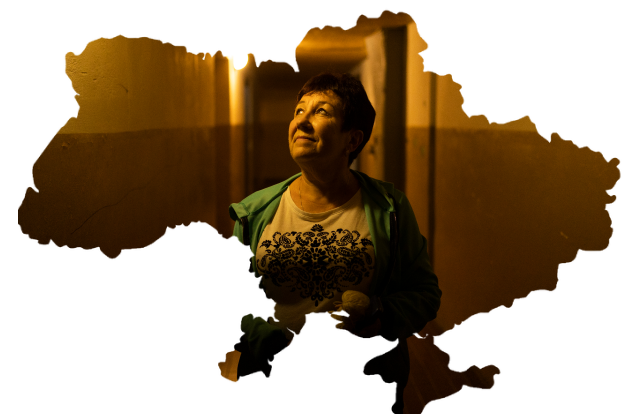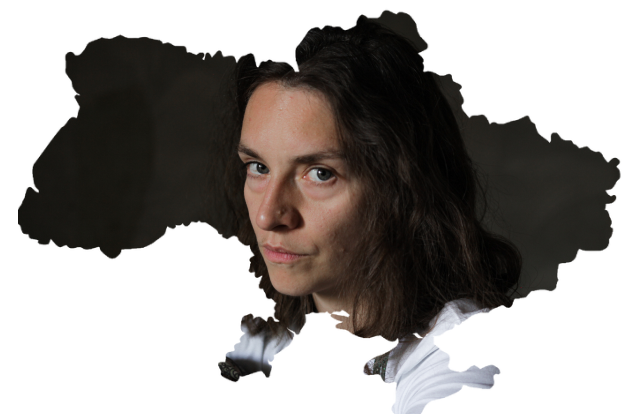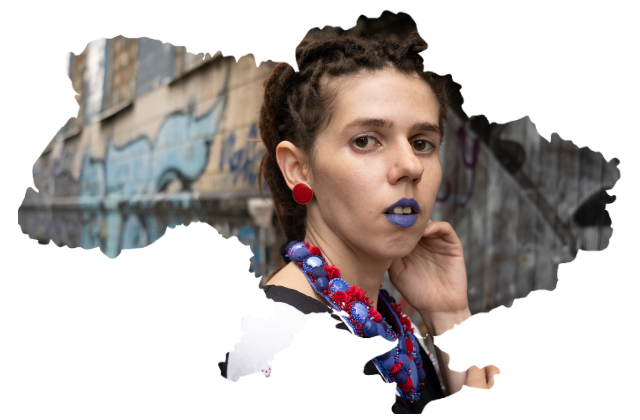Serhii Boichenko,
furniture manufacturer
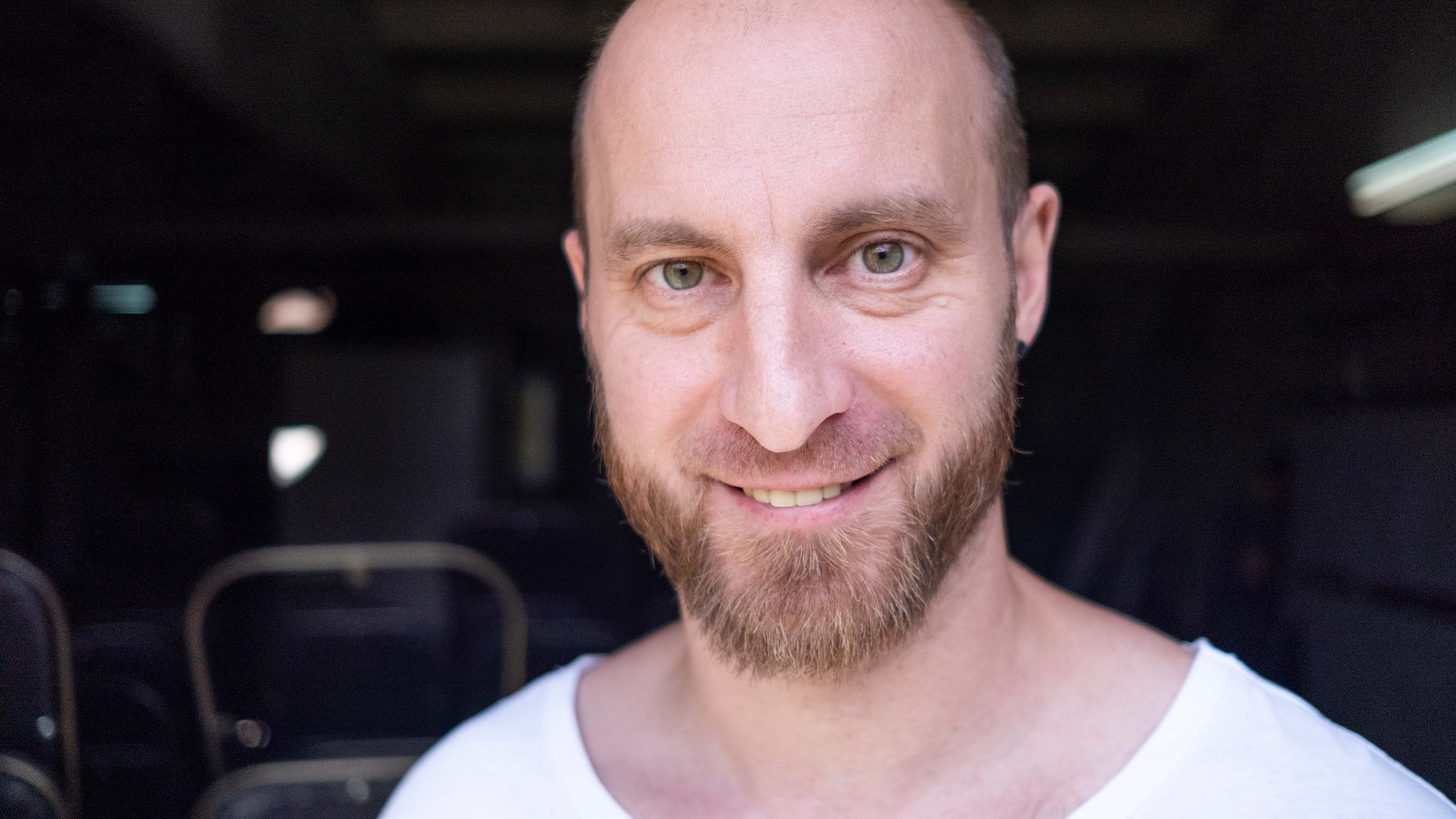
Donetsk - Zaporizhzhia - Dnipro - Kharkiv - Chernivtsi
My roots are in the small town of Chystiakove, formerly Torez, in the Donetsk Oblast. I studied in Donetsk, and then I made furniture. I left the city in 2014. I don't remember that year very well, but I remember the key moment when I decided to leave. I was standing at a bus stop, and a column of trucks with Russian soldiers drove past me into the city. I left quite spontaneously, the plan was simply to escape from the city and then see how things would turn out.
It so happened that I ended up in Zaporizhzhya, where I was sheltered by friends of mine. I was depressed for about a month but then I pulled myself together and started developing my business all over again. Then I moved to Dnipro, and there I received a big order for furniture from a Kharkiv IT company. It was for that reason that in 2016 I decided to finally move to Kharkiv.
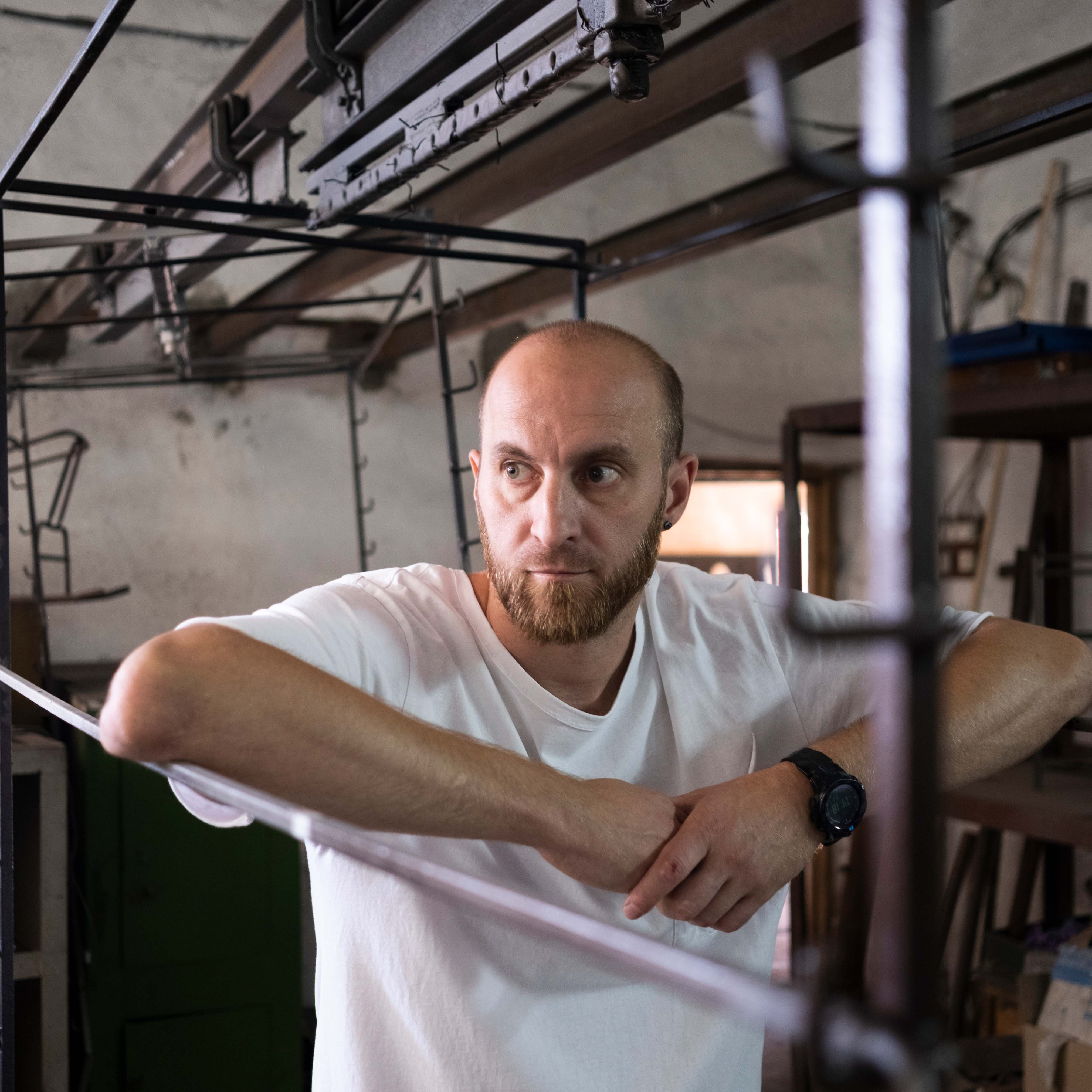
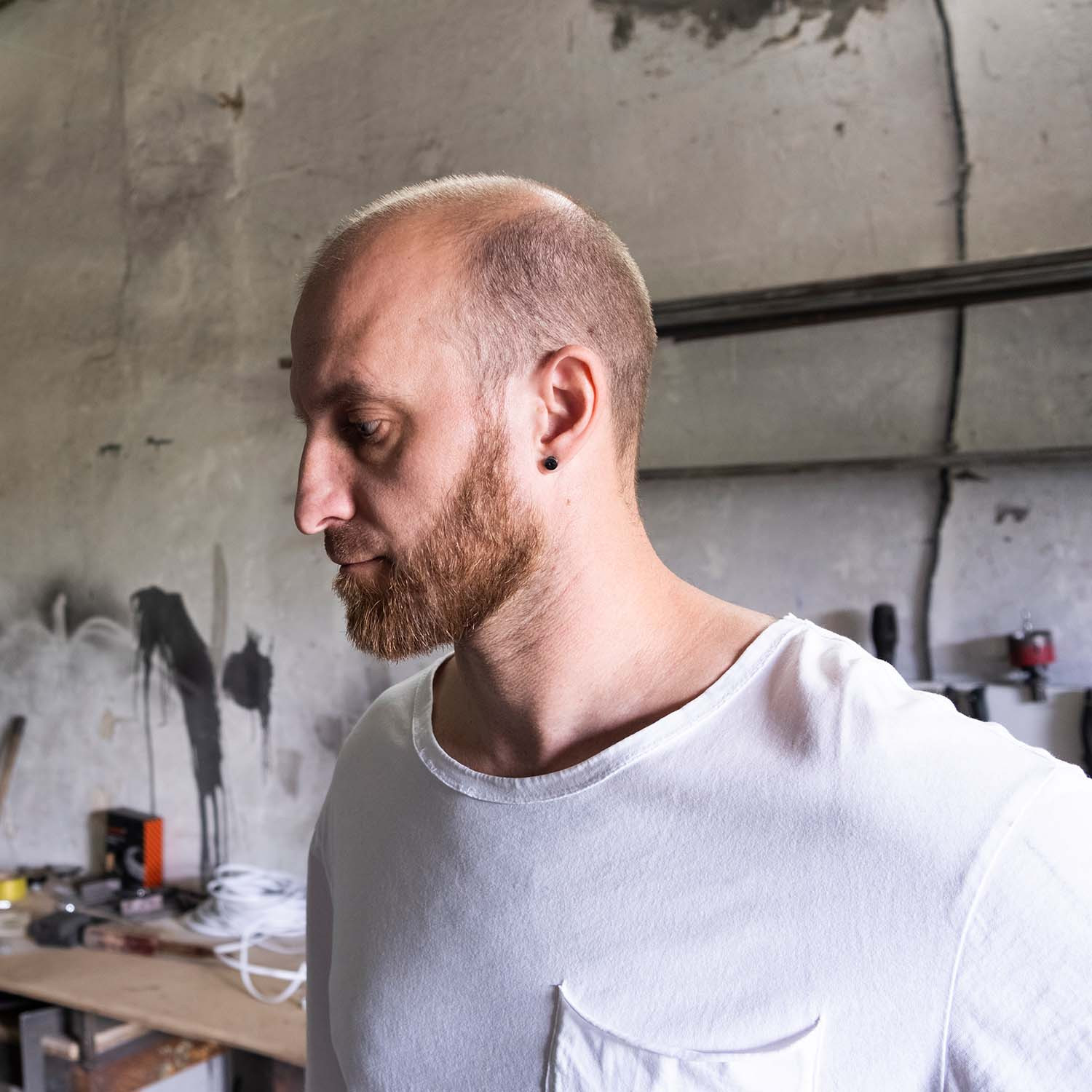
In mid-February, my wife Sasha and I flew to Egypt. On February 22, we decided to go back to Kharkiv for two days, to pick up our dog, documents, and money, and to move out if things get tough. On February 23, we landed in Kharkiv, and as we drove from the airport in a cab, I could see the military all along the road. I always take notes, and that day I began with the words: "I have deja vu."
On February 24, we slept through all our alarms and the explosions too. We woke up and the first thing we did was check our phones, and there was: "The country is at war." I went out to pick up our car from the factory and told Sasha to get ready and to wait for me in 20 minutes. She still wanted to pack a big suitcase. I'm trained to be with two backpacks: a bigger one and a very small one. You dump the bigger one in the field and just run in case anything happens.
We were leaving Kharkiv and got stuck in huge traffic jams, which were partially provoked by panic. We were on our way to Kyiv to pick up another part of the documents and another car. The number of cars was insane, and it was a hell of a night. At some places, we had to wait for 10-12 hours. We spent a night in Vinnytsia and we were on our way to the border when one of our friends offered us a vacant house in Chernivtsi.
We were lucky to have a bunch of people we knew nearby. Everyone had a different destination but our paths crossed, and many Telegram chats were created: we shared our plans and informed each other on how to avoid traffic jams.
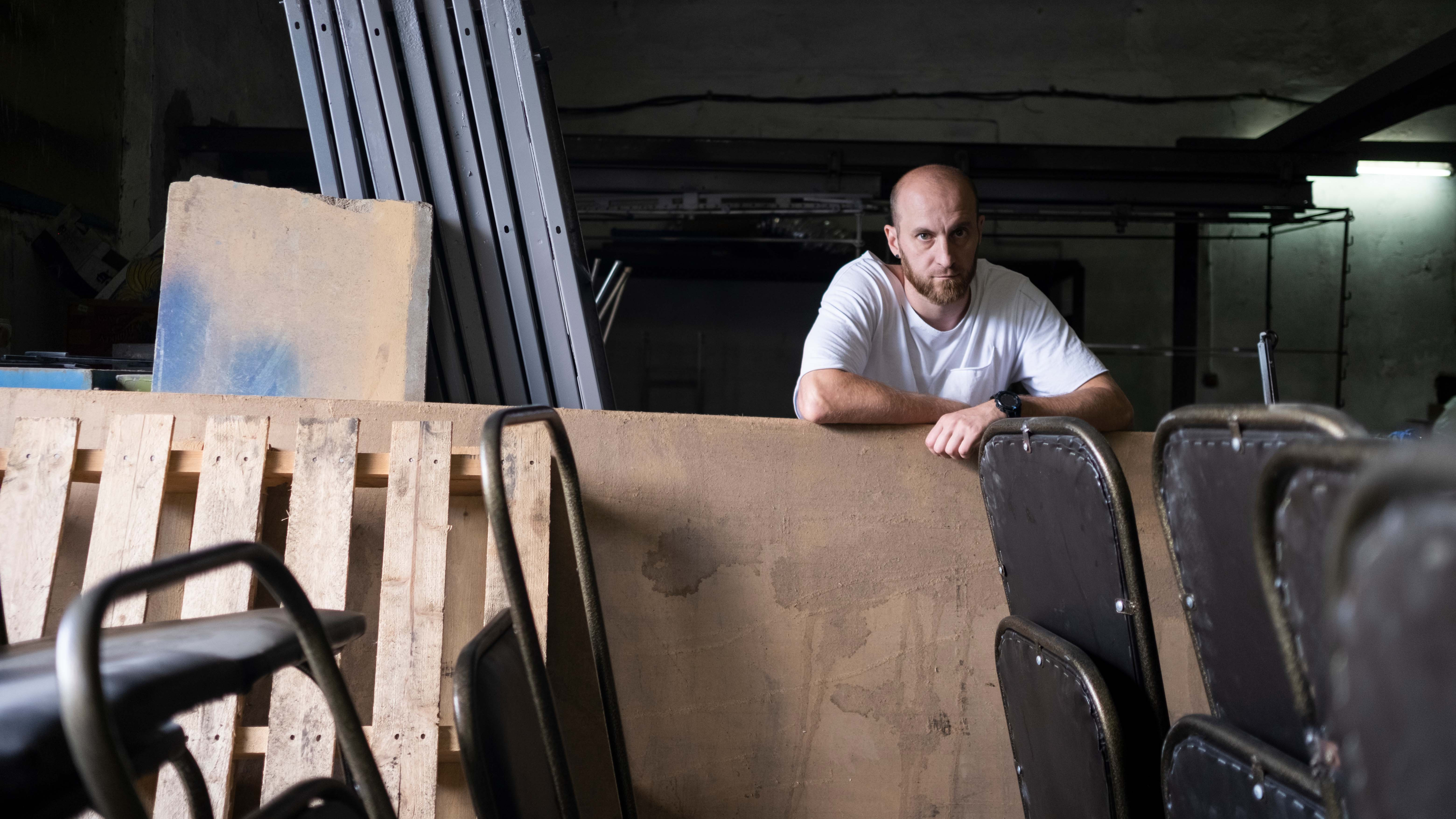
Some of my friends arrived in Chernivtsi too, so all the girls took one car, and we drove toward the border. I was sure that they would let me out of the country since I was unfit for military service. However, they turned me and Sasha back, and a scandal broke out right at the checkpoint. That was how we broke up: she took her things, crossed the border on foot, got in the car with the girls and they drove off.
It hit me hard. It was also a curfew, so I had to spend the night at the border. At night people from the nearest village came up and offered tea and cookies to everyone who was waiting at the checkpoint. Surely that was something that brought me to tears. In the morning, two women knocked on my car window and told me that there was a school nearby where I could eat. And I was like, "Fuck it all, I'm going to get some food!"
They fed me, and I came to my senses. I found out that Iskander, a friend of mine from Kyiv, was then in Chernivtsi. I stayed with him for two days and slept on a mattress on the floor in his relatives' apartment. We visited their factory: in one of the workshops, 40 people were staying overnight. I can imagine how many resources it all used up.
Pretty soon, everyone who lived in the apartment started to feel some kind of nostalgia. By that time, all of us had made at least one trip home. I transported humanitarian aid to Kharkiv, and that was where nostalgia did an interesting thing to the psyche. You are alone in the car, and you drive alone in your lane. You see traffic jams next to you, the same as you drove through a week ago. And the closer you get to Kharkiv, the weirder you feel: you cry, you say goodbye to your life. Your family is in Donetsk Oblast, the woman you love is in the EU, and you have no business, no income and no place to live. You begin to take things very literally: if you can touch them with your hand, you have them. And if it is, for example, an apartment in Kharkiv, you may as well think it doesn't exist.
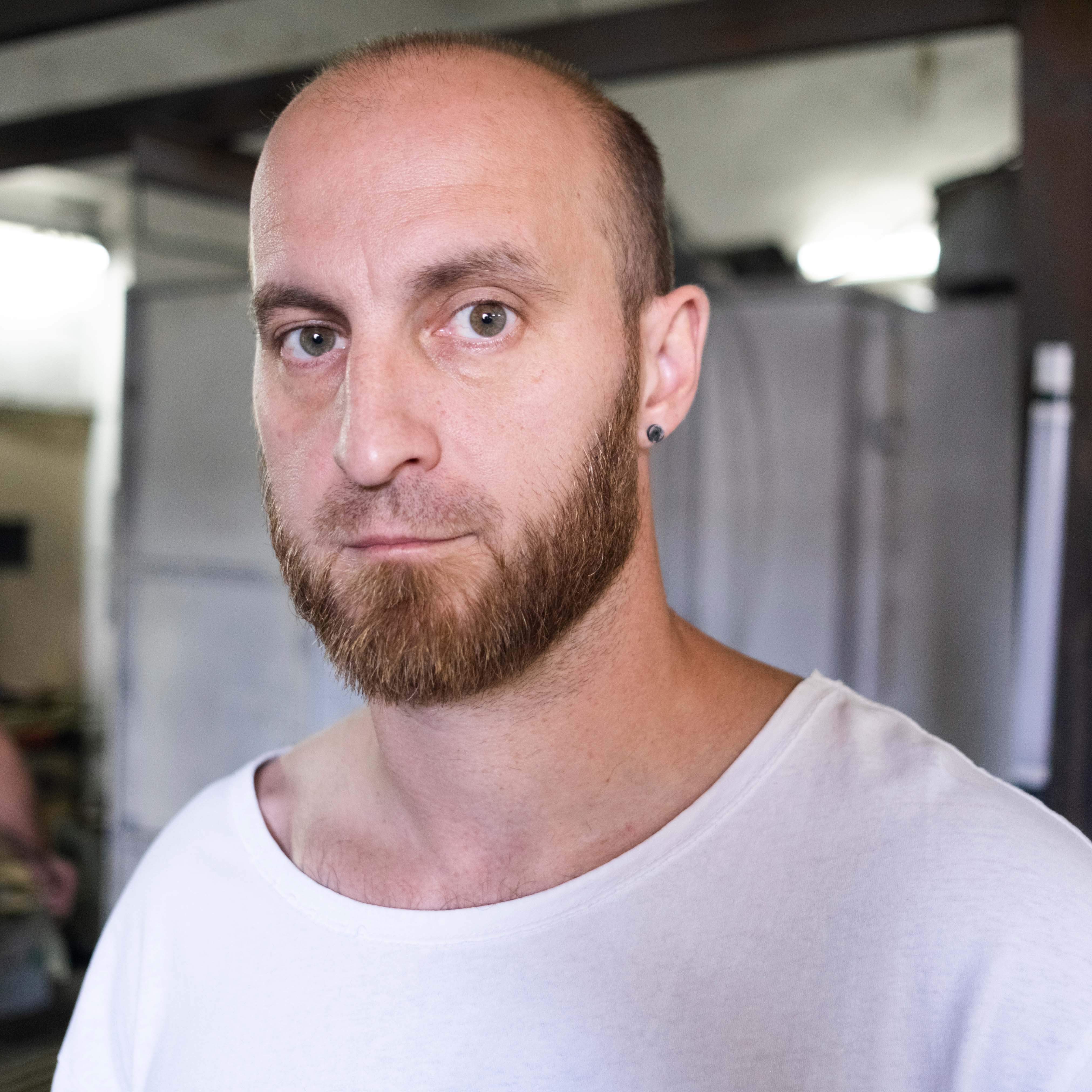
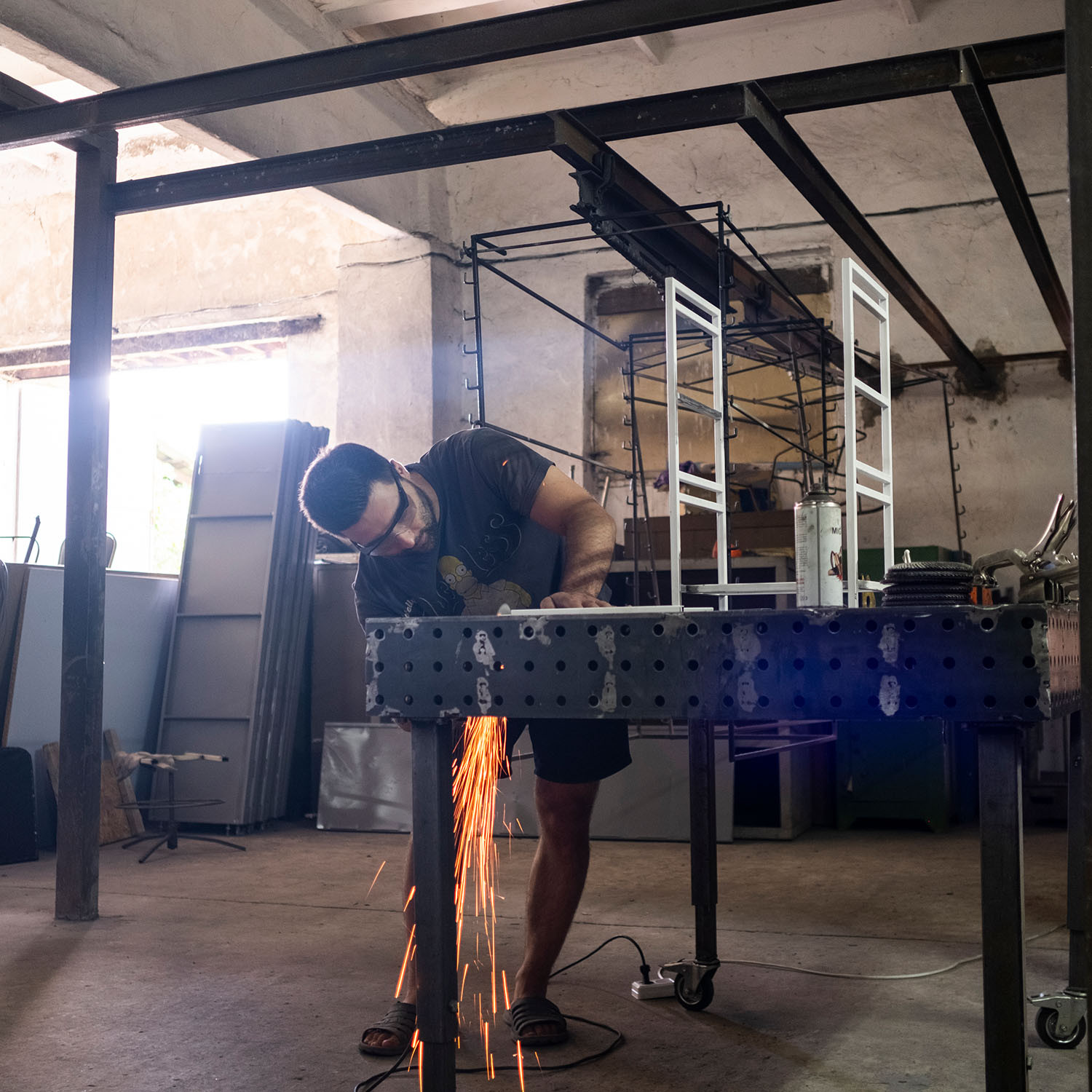
This is a purely individual trait, but when it is necessary, I get strongly involved in things. Once my assistant Andrii was able to get back to work, I gave him the task to test the waters to restart furniture production of furniture in Chernivtsi. The final impetus in this decision was a visit to one of the factories, where a dude working there told me: "We'll find a workshop for you. The whole factory is empty. Let me show you around." He opened one of the facilities, and there was all the equipment I needed. He said, "Here, work."
But definitely, there were some not-so-nice things too. When we first arrived in Chernivtsi, we found a note under the wiper, saying, "Our men are at war, and you are here having fun." I do realise that people can do such things out of anger. Still, I wanted to take that note, come up to them and say: "You haven't been through what I have, and you have no right to shove this note in my face." But no one has ever confronted me directly or treated me with disrespect.
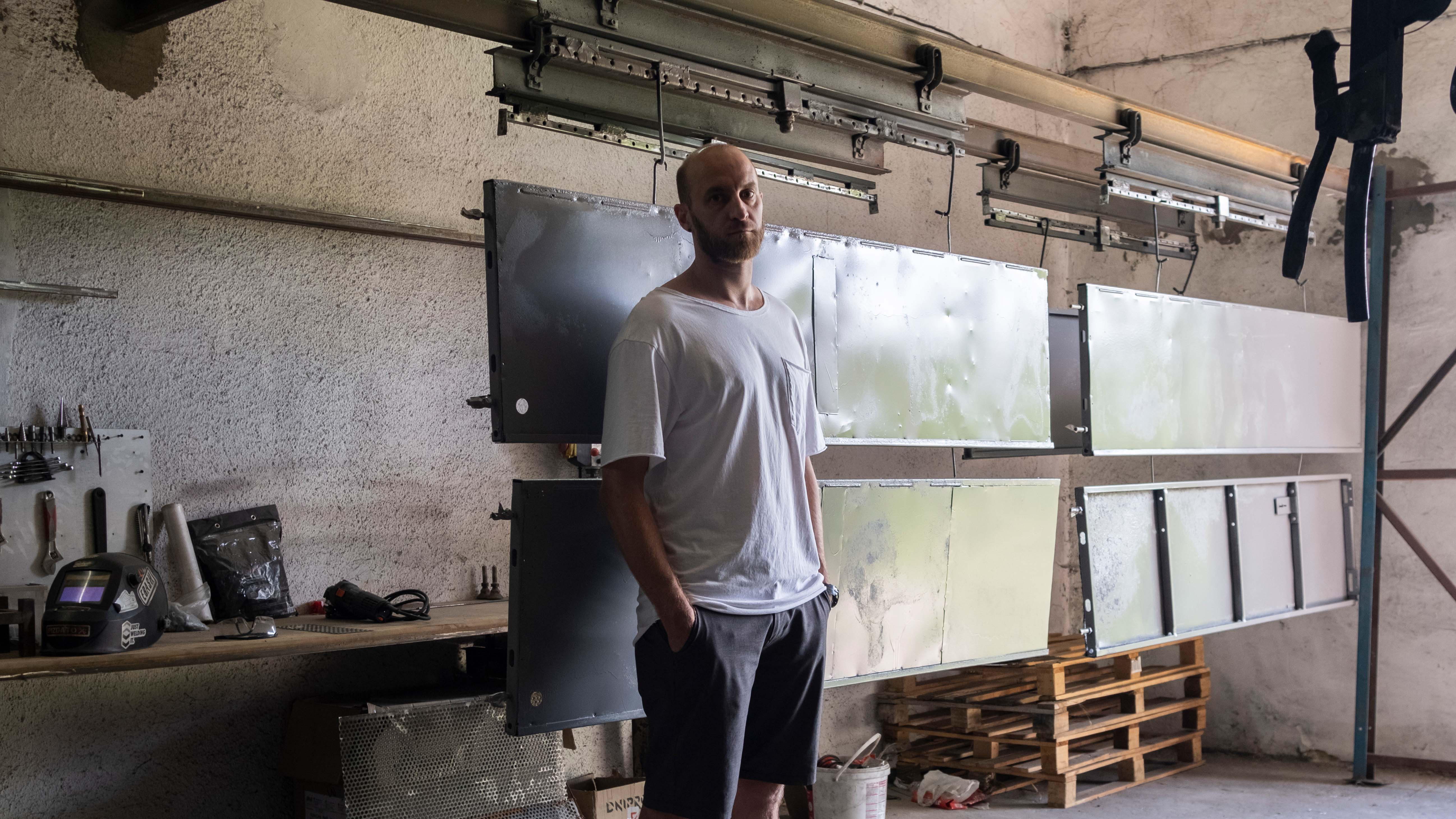
I certainly get noticed. I have a black BMW with Donetsk license plates. When I transported humanitarian aid, I had a sticker with a red cross on it. This fact triggers most people: "So are you one of us or are you a stool pigeon?" They also react strongly at the checkpoints. At some stage, I realized that this must be my mission. That is why, as a matter of principle, I do not change my Donetsk license plate number. Probably to demonstrate and remind people: Donetsk is Ukraine.
After I left Donetsk, people often ask me where I am from. I am from Kharkiv, Dnipro, Zaporizhzhia, Donetsk and Toretsk. Now I can probably call Kharkiv my home. On the one hand, it is a difficult question, because you can't answer it unequivocally. On the other hand, it is easy, because now I'm attached neither to cities nor to people. If you drop me in Australia, I can find friends there as well. The main thing is to get into the right chat on Telegram.
If one day Russia raises the white flag, I'll go back to Kharkiv. I would go there straight away, but the shelling... I still remember the fighter jets in Donetsk. That's why I'll build up strength in Chernivtsi, to make a powerful comeback in Kharkiv. I want to return there to make the city very cool and bring it up to the next level, even higher than it was before the 24th of February.
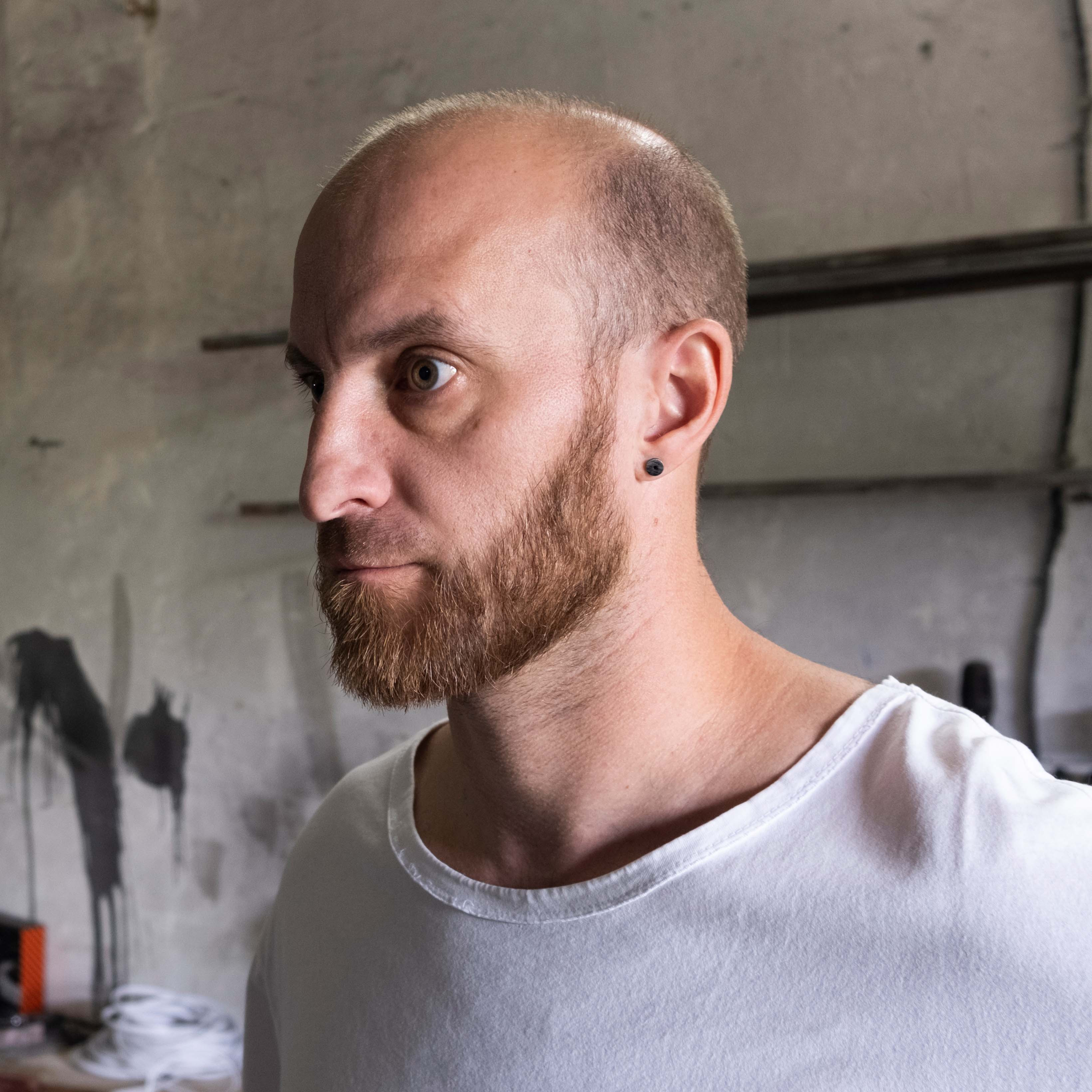
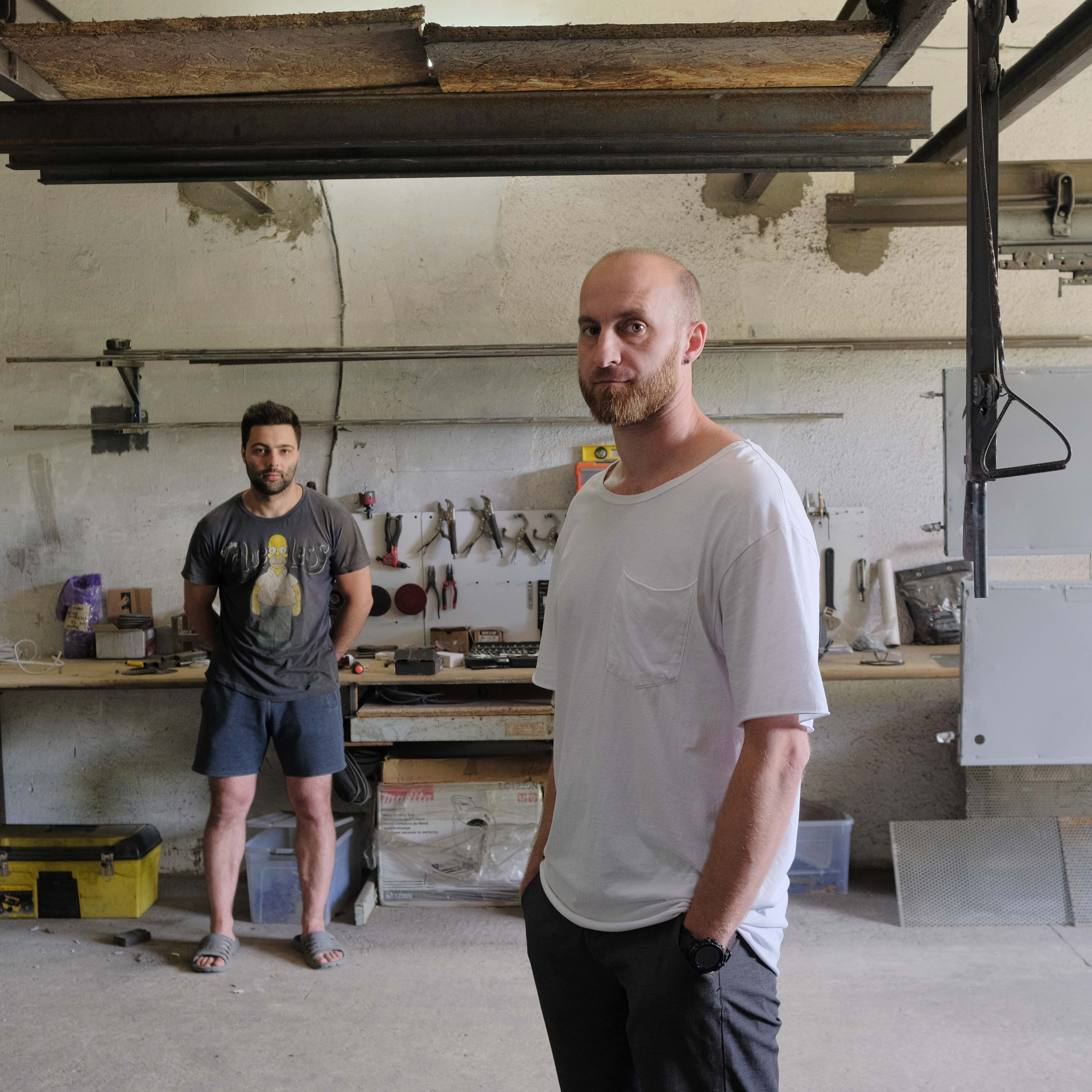
Recorded by Sofiia Panasiuk
Translated by Volha Mikhnovich
Photography: Ivan Pandikidis
.png)



